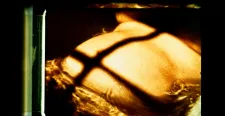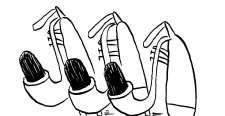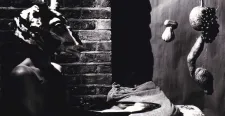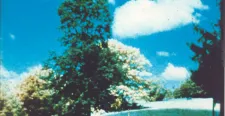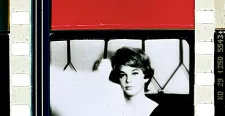Camera lucidas: what is cinema, with Christoph Huber
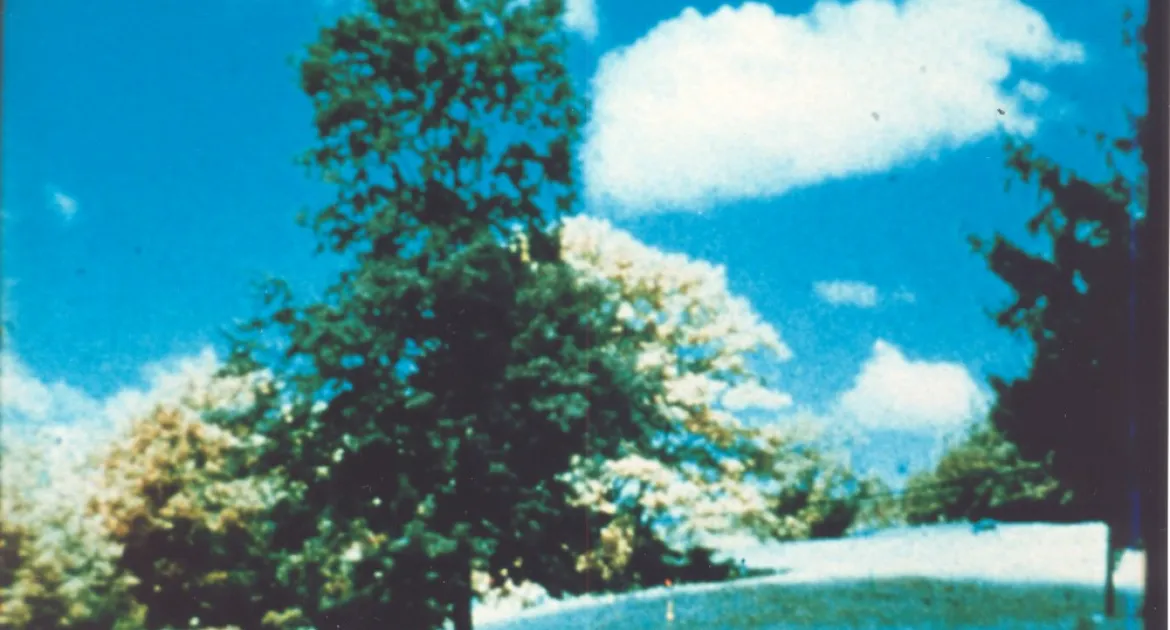
At the Austrian Film Museum we are blessed with a film series that is repeated every year: For the centenary of cinema in 1996, our co-founder and longtime director Peter Kubelka, even more famous as an avantgarde filmmaker himself, conceived What Is Film. This cycle of 63 film programs is his personal selection of movies “that define film as an independent art form and a tool which cultivates new way of thinking”. It contains mostly—but not exclusively—classics of experimental cinema: a personal history of filmic milestones of the 20th century, all made on 35mm, 16mm or Super-8 analogue material and presented in their original gauge. With every passing year in which even renowned cinematheques show less and less experimental classics, and ever fewer in their original format, this program seems more of a luxury. In fact, many of the prints have become so rare that we cannot loan them out for screenings elsewhere.
But luckily, we have several prints of some of the finest works in the cycle, and these can travel under special circumstances. So I first made a selection among these after I was invited by Documenta Madrid to present a personal journey through the history of experimental cinema related to our cycle. But as indicated by the question mark I’ve added to What Is Film?, the idea is to both endorse and challenge Kubelka’s authoritative canon, which necessarily privileges certain aspects of film to the detriment of others. It remains invaluable as an individual gift that allows repeated encounters with many masterpieces that are increasingly hard to see the way they were meant to be—on film. Yet in my opinion one would also do the richness of cinema a disservice by too narrow a focus. So the following four programs of favourite shorts are a tribute to the way the Film Museum and its programs have shaped my understanding of film while building on it. The first program, simply titled What Is Film, represents this perfectly: The first six films, all taken from Kubelka’s cycle, are a varied compendium of some of the greatest things film can achieve —but for a closer, I’ve added a surrealist video comedy piece that can be seen both a raspberry to the preceding films as well as an ingenious expansion.
Similarly, the other programs expand on this idea: one draws on the musical aspect of cinematic brilliance while highlighting that Bugs Bunny and the Looney Tunes (or their creators and heirs) may be the true godfathers of the avantgarde, and the other two focus on Austrian achievements, underlining how a rich and strong experimental cinematic culture in a country remains crucial for the ongoing and knowledgeable appreciation of this kind of filmmaking. And finally, I am happy to present the world premiere of our recent restoration of one of its few feature-length achievements, Wienfilm 1896-1976, a different kind of city symphony carved from found footage by iconoclast Ernst Schmidt jr.
Christoph Huber.
With the mediation of the critic and filmmaker Pablo Marín.
Christoph Huber
Curator at the Austrian Film Museum | Austria
Christoph Huber (*1973) is a curator in the Program Department of the Austrian Film Museum. After getting his degree as DI of Physics at the Technical University of Vienna, he worked as a film critic and arts editor for the Austrian daily paper Die Presse from 1999-2014, before fully joining the cinematheque for which he had previously written the program notes and conceived several film series. He has curated numerous other retrospectives—covering pretty much everything from avantgarde to genre cinema—for cinemas and festivals all over the world. For many years, he was the European editor of the recently discontinued Canadian film magazine Cinema Scope, while contributing to countless other international periodicals, homepages and printed publications. Together with Olaf Möller he has also co-authored books on the directors Peter Kern and Dominik Graf. Ferronian.
Pablo Marín
Critic, filmmaker and professor | Argentina
Pablo Marín (Buenos Aires, 1982) is a critic, filmmaker and professor. He was in charge of the film book collection at the publishing house El cuenco de plata and worked as an editorial assistant at Caja Negra Editing. He has translated the books Por un arte de la visión: escritos esenciales about Stan Brakhage (Eduntref, 2014), Escritos sobre cine norteamericano, with the writings of J. Hoberman (El cuenco de plata, 2016) and Fluxus escrito (Caja Negra Editora, 2019), among others. As an independent researcher and curator, he has held conferences and programs on Argentine film in the United States, Canada, Spain, Austria, Finland and Switzerland and was a member of the research team for the project ISM ISM ISM: Experimental Cinema in Latin America, by the Los Angeles Filmforum and the Getty Foundation. His films have been screened and earned awards at international festivals and museums. He teaches at the Universidad del Cine of Buenos Aires and has been coordinating the audiovisual archive of the Mariano Moreno National Library since 2014. In 2022 he published the book Una luz revelada: El cine experimental argentino (La Vida Útil, 2022).



 DocumentaMadrid
DocumentaMadrid
